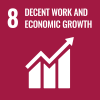Bangladesh, 4 September 2023 – “Everyone was crying out in fear and pain, but our cries fell on deaf ears,” recalls Kamal, a 37-year-old Bangladeshi man who fell into the trap of traffickers.
Struggling to make ends meet, Kamal thought migration was his only option for a better life. However, what started as a hopeful journey ended up being one of the most painful experiences of his life.
He began his journey in 2018 when he sought the help of a middleman, “Azam", who promised to assist him in traveling to the United Arab Emirates (UAE), but it came at a price. He had to sell his land to raise BDT 300,000 (approximately USD 2,765) to facilitate his journey.

Kamal hopes that he will be able to make an income by offering driving services. Photo: IOM 2023/Md Sariful Islam
There were several red flags along the way. The flight was scheduled to depart from Chittagong airport as opposed to the main international airport in Dhaka. Additionally, Azam and his travel companions were made to wait in Chittagong for two days before they were given the news about their visas being rejected.
"We were forced to get on a ship, made to hide so that the coast guards wouldn't find us," Kamal says, his voice quivering at the memory. "They started beating us when we protested. They threw a sick man overboard. It was horrifying." The threat of 'silent submission or death' hung over their heads like a sword. "It was a clear message – they were ready to kill."

Kamal carries the haunting memories of a perilous journey to Malaysia. Photo: IOM 2023/Md Sariful Islam
Azam and his partners had gathered around 60 to 65 people in a shared residence in Chittagong, where they arranged for small boats carrying 10 to 15 individuals to transport them to a bigger ship docked at sea; none of them had visas.
Adrift at sea for nine days, Kamal and others were finally transported to a ship. However, the men on the other boat amplified the palpable tension with their menacing looks and drug-fuelled behaviour. "While handing over from the first ship, one of the traffickers sneered, 'Don't bother speaking to them. They won't understand your language. They will only beat you if you try.' We had no choice but to comply."

Despite obtaining a passport, Kamal couldn’t use this for his migration in a regular way. Photo: IOM 2023/Md Sariful Islam

Kamal shows the mobile phone that he could bring with him from Malaysia. This device helped him communicate with his family. Photo: IOM 2023/Md. Sariful Islam
After nearly 20 days at sea, the port city of Penang in Malaysia came into view. However, the ship didn't dock at the harbour. Instead, under the cover of darkness, small boats would take groups of 8 to 10 ashore.
Immediately upon disembarking, Kamal and others were stripped of their belongings, leaving them only with the clothes on their backs.
At midnight, traffickers took them to Penang City and kept them in a small room. The conditions inside their holding cell were filthy and cramped. Around 30 people were crammed into a room no larger than two by three metres. Sitting or sleeping was a challenge. Hunger gnawed at Kamal constantly.

Kamal's driving instructor, Sheikh Osma Ali, is sure Kamal will have a prosperous future. Photo: IOM 2023/Md Sariful Islam
"Our meals were sparse, consisting only of rice and eggs," he recalls. The language barrier was another formidable hurdle. Unable to understand their captors' language, they were subjected to constant harassment.
After one and a half months, Kamal was put to work on a construction site, a gruelling role as a helper to erect steel frames for buildings. But he was no construction worker. He requested a different task and received a painter's job in a workshop. For three long months, he worked there for excruciating hours. The pay was dismal. "They gave us barely enough money for food, nothing more," he says.

Kamal dedicates time to caring for animals, a means through which he earns additional income. Photo: IOM 2023/Md Sariful Islam
This dreadful routine of work and fear was broken one day when the police raided their work site and took them to the police station. "I spent five days in jail," Kamal remembers. Upon release, they were given an ultimatum: manage to get money to return home or stay trapped. Despite their dire financial situation, Kamal’s family managed to borrow BDT 150,000 (approximately USD 1,382) for his ticket back home.
In July 2018, Kamal finally returned to Bangladesh. However, his struggles were far from over. Instead of a warm welcome, Kamal faced the chilly rebuke of social stigma. His ‘failure’ overseas and the murky circumstances of his return made him an object of scorn and gossip. People mocked him, saying he couldn't accomplish anything, even after going abroad.

Kamal emerges as an inspirational figure in his community, promoting safe migration. Photo: IOM 2023/Md Sariful Islam
Hope for Kamal came when he was identified as a beneficiary by IOM’s Comprehensive Counter Trafficking Programme to Address Human Trafficking in Bangladesh project, funded by the Korea International Cooperation Agency (KOICA). As part of the project, he began attending sessions on mental health. "They taught me how to heal and build myself up from the ruins," he says.
Kamal also received life-skills training. He attended a two-day residential training that included life skills, communication skills, time and stress management, problem-solving and decision-making, financial literacy and income-expenditure management, savings, and productive investment.
The project also helped Kamal enrol in a driving course at the Bangladesh Road Transport Corporation (BRTC), helping him regain his confidence and find a new livelihood.
After completing the training, Kamal is planning to get a job driving a car. He also educates others about the dangers of human trafficking and irregular migration.
By Md Sariful Islam, National Communications Officer, IOM Bangladesh




